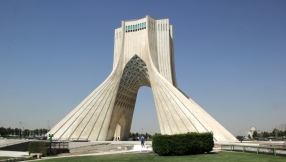Christians from all over the world will celebrate the Holy Week, the week of events that commemorate the death and resurrection of Jesus Christ. Palm Sunday marks its beginning, but what is its meaning, origin, and its connection to Easter Sunday?
Palm Sunday started around the fourth century in the Jerusalem Church. In its early celebration, Christians sang hymns and recited prayers and sermons as they walked through several holy sites in the city.
When they reached the place where Jesus ascended to heaven, the clergy would recite gospels pertaining to Jesus' entry into Jerusalem. After which, the people would go back to the church for an evening service, with the children carrying with them palm and olive branches.
Since then, the celebration has spread in different areas and has also evolved through the centuries. Nonetheless, its meaning remains constant — the entry of Jesus into Jerusalem to celebrate the Passover before his death.
In the accounts of the gospels recorded in the Bible, the people welcomed Jesus by waving and laying down palm branches as he entered the city through a donkey. As the Messiah walked, people shouted "Hosanna to the Son of David" and "Blessed is he who comes in the name of the Lord."
During that time, the act of laying down branches symbolized respect and honor. On the other hand, the donkey represented humility and peace, which is attributed to Jesus himself. The entire event fulfills the prophecy indicated in Zechariah 9:9.
Although the manner of celebrating Palm Sunday has slightly changed through the years, Christians continue to use the time to reflect on the teachings of Jesus, his passion, as well as his death and resurrection. It is also a time used for cleansing and reflecting on one's sins and asking for repentance.













